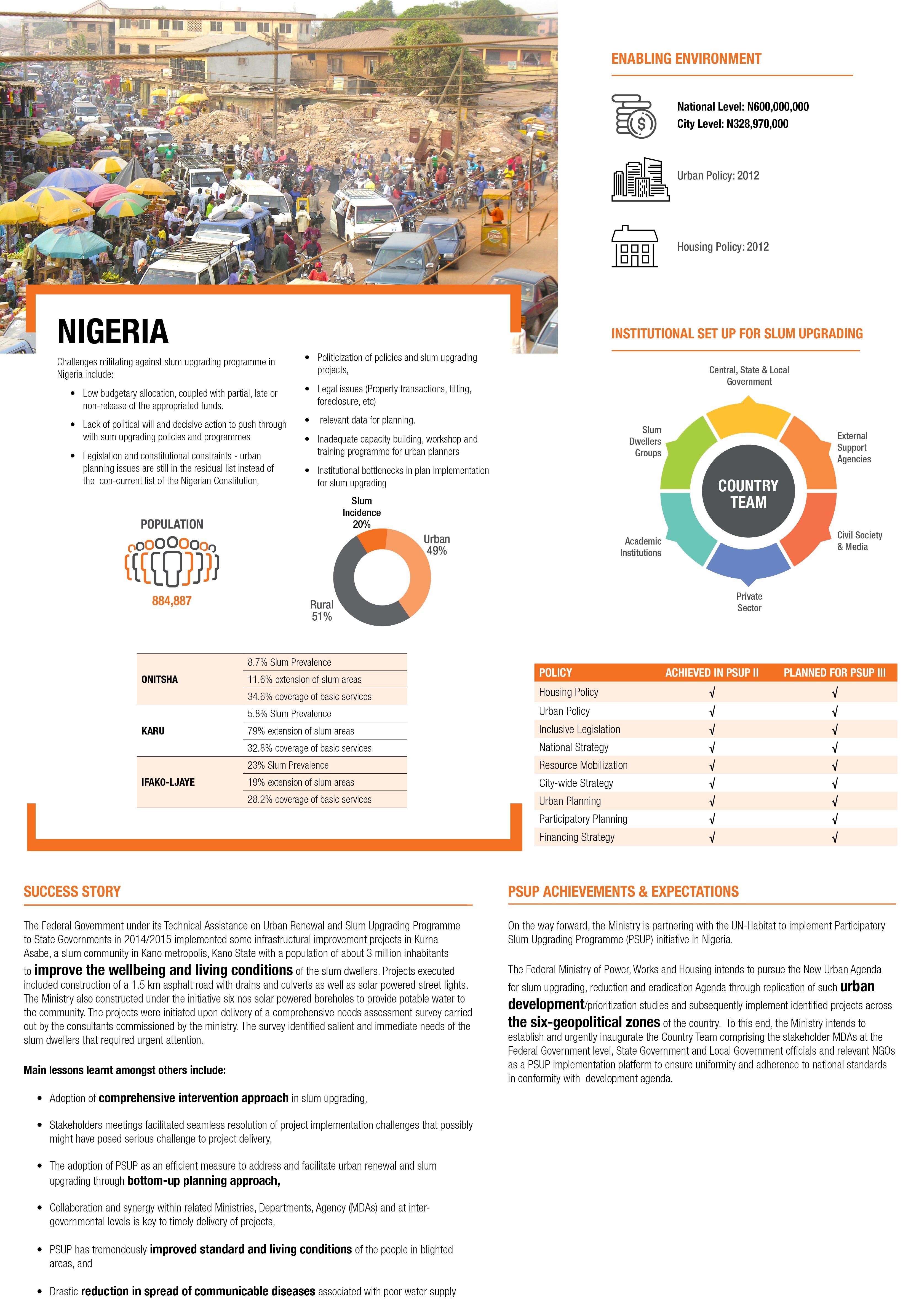Nigeria
As key regional player in West Africa with approximately 180 million inhabitants, Nigeria accounts for almost half of the region’s population and has one of the largest population of youth in the world. The new middle class is growing alongside the economy, not least because of the enormous oil reserves in the country. As early as 2014, Nigeria replaced South Africa as the largest economy on the African continent. Accordingly, the country is rapidly urbanising, especially the economic centres of Lagos with its 14 million inhabitants and the capital Abuja. However, political insecurity is putting the brakes on the country’s progress. The Islamic-State-aligned Boko Haram, based in the Northern region terrorises the country with attacks. This is not only affecting the development of the country; it is also hindering foreign investment. In addition to terrorism, Nigeria’s enormous population growth poses major challenges for the government. It is no easy task to create adequate housing and infrastructure for all the people in the rapidly growing cities. Up until now, informal settlements accommodate half of the nation’s urban residents.
The Federal States of Zamfara in the North and Edo in the South have partnered with UN-Habitat to develop 12 urban structure plans in urban centres. The plans will help in developing safe cities and are designed to address social inclusion, improved integration, mobility and connectivity, and better service delivery.
The Participatory Slum Upgrading Programme has carried out an urban profiling for the towns of Onitsha and Karu as well as for Lagos’ city district Ifako Agege, and is partnering with the Federal Ministry of Lands, Housing & Urban Development to formulate slum upgrading and prevention interventions, strategies and policies. The Government has established a national PSUP budget and is providing additional funding through its commitment to co-finance the PSUP approach at state level. Ministry and city government officials have been trained on participatory slum upgrading strategies and policies, as well as programme formulation, results-based management, gender, human rights-based approaches as well as planning, basic urban services, housing and land issues. In addition to the partnership between Edo and Zamfara States with UN-Habitat, the Federal Capital Territory Administration (FCTA) has requested to partner with UN-Habitat using the PSUP approach to address the rapid urbanisation in the Satellite Towns within the Capital, Abuja, which have profound problems with informal settlements.


